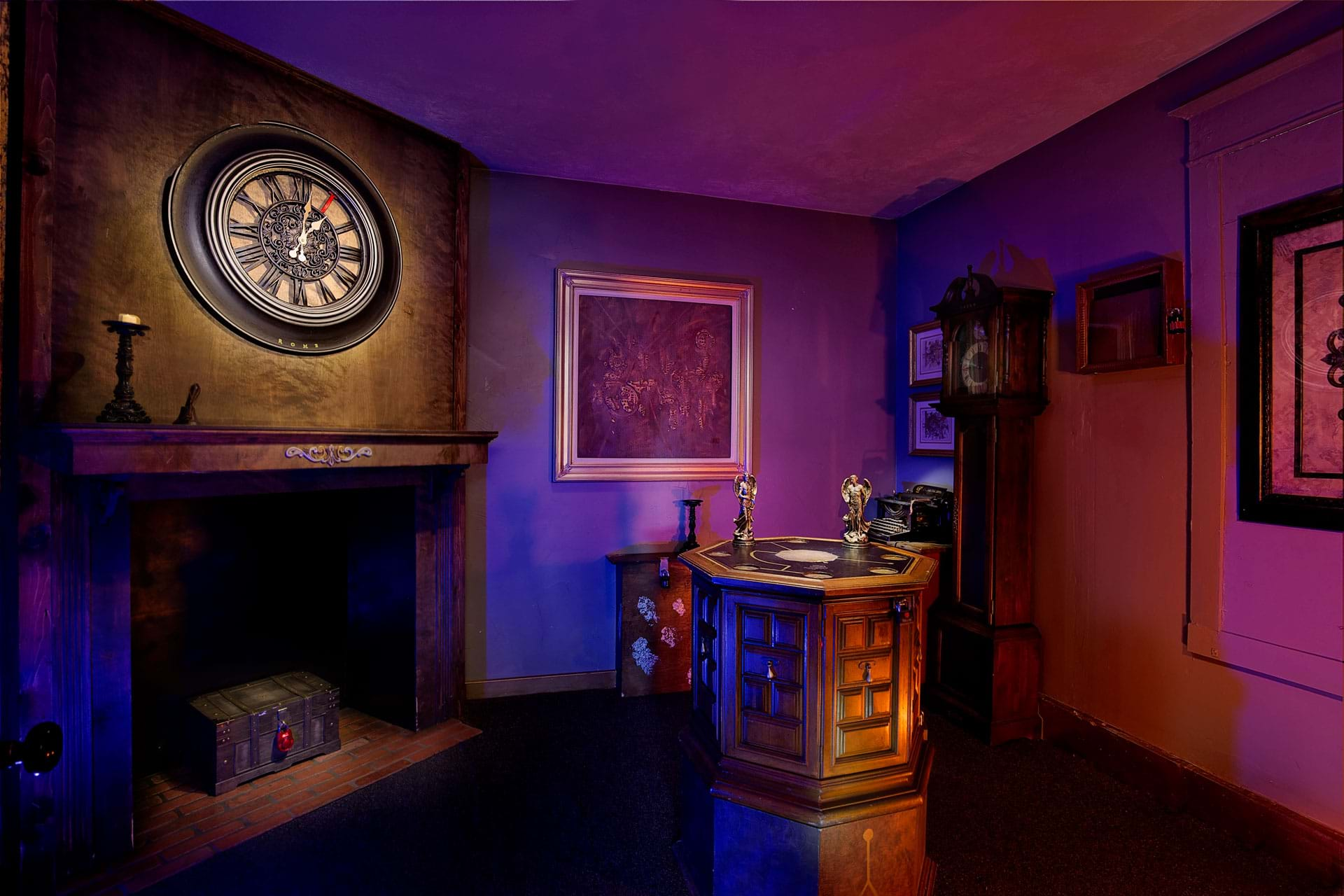Discover the Best Escape Room in Minneapolis-- Schedule Your Experience
Discover the Best Escape Room in Minneapolis-- Schedule Your Experience
Blog Article
Group Approaches: Just How to Collaborate Successfully in an Escape Room
Teams should actively listen to each participant's insights, designate functions that align with individual toughness, and preserve regular check-ins to ensure focus and prevent redundancy. By fostering an environment that values cohesion and versatility, teams can considerably enhance their performance and success prices.
Establish Clear Communication

To assist in clear interaction, it is important to designate a main factor of call for information circulation. Brief, focused updates from each group participant can maintain the group educated without frustrating them with info.

Appoint Functions Strategically
While clear interaction establishes the structure for reliable team effort, appointing roles tactically makes sure that each staff member's strengths are used successfully. In a getaway space circumstance, the time-sensitive and complex nature of obstacles requires an efficient strategy to task delegation. By determining and leveraging specific proficiencies, teams can optimize their analytical abilities and boost total efficiency.
First, evaluate the distinct skills and characteristics of each participant. Somebody with a keen eye for information could excel in locating hidden things, while a rational thinker can be much better fit to fixing puzzles. It's equally vital to have a leader who can manage development, manage the timeline, and make decisive calls when needed. This function commonly needs strong organizational and social skills.
2nd, make certain that roles are versatile and versatile. As new difficulties emerge, the team has to have the ability to pivot, reallocating jobs as called for. This versatility helps preserve energy and protects against traffic jams that could take place as a result of stiff role tasks.
Ultimately, a critical method to role project not just makes best use of the toughness of each employee yet likewise cultivates a cohesive atmosphere, driving the team in the direction of a successful getaway.
Utilize Diverse Abilities
Acknowledging and taking advantage of the diverse skills within your group can considerably raise your performance in an escape space. Each employee brings special staminas to the table, and properly leveraging these abilities can speed up problem-solving and enhance total effectiveness. A team member with solid analytical abilities might excel at analyzing complex codes or patterns, while another with eager empirical capabilities might quickly detect concealed ideas that others might neglect.
Efficient interaction is essential to utilizing these varied skills. Motivate employee to articulate their insights and concepts promptly, guaranteeing that all prospective remedies are considered. This inclusive approach cultivates a vibrant setting where creative thinking and crucial thinking can prosper. In addition, designating jobs that align with each participant's staminas can avoid traffic jams and ensure that progression is continual.
Furthermore, diversity in skills often equates to diversity in thinking styles, which is very useful in an escape room setup. While some obstacles may need logical thinking click here to read and accuracy, others could gain from imaginative and association of ideas. By recognizing and leveraging this variety, teams can deal with a more comprehensive range of difficulties extra efficiently, therefore enhancing their opportunities of an effective retreat.
Manage Time Successfully
First, assign first minutes for visit the website a quick survey of the space. Determine noticeable puzzles and separate jobs based on employee' strengths, ensuring that no one is still. Set inner time checkpoints to review progress periodically; for example, objective to have half the challenges fixed by the mid-point of the game. This technique can aid keep the group concentrated and protect against time from sliding away undetected.
In addition, stay clear of tunnel vision. If a puzzle is taking too long, turn team participants or go on to one more obstacle, returning later on with fresh viewpoints. Interaction is paramount-- keep every person updated on solved problems and staying tasks to prevent repetitive initiatives.
Finally, utilize any kind of tips or ideas sparingly yet strategically - best escape room. Understanding when to ask for aid can save useful time. By sticking to these time administration principles, teams can substantially improve their chances of a successful and pleasurable getaway area experience
Debrief and Reflect
Representation is a crucial aspect of group advancement and renovation in the context of getaway spaces. Once the difficulty is completed, whether effectively or otherwise, it is critical for the team to participate in an organized debriefing session. This process enables employee to assess their efficiency, recognize strengths, and identify locations for improvement.
Start the debrief by reviewing what went well. Highlight particular instances of efficient communication, analytic, and partnership. Recognizing these positive habits enhances them and urges their rep in future challenges.
Go over minutes of complication, miscommunication, or ineffective approaches. Motivate an open and useful dialogue where team participants can share their point of views without fear of objection.
Conclusion
Finally, successful partnership in a retreat area is based upon clear interaction, calculated this link duty jobs, the reliable utilization of varied abilities, and skilled time monitoring. Regular check-ins and structured debriefings are crucial for maintaining emphasis and promoting continual enhancement. By producing a natural and adaptive team atmosphere, the probability of effectively addressing challenges and achieving the goal of leaving the space is substantially improved. This technique not just guarantees success yet also promotes cumulative development and understanding.
Report this page